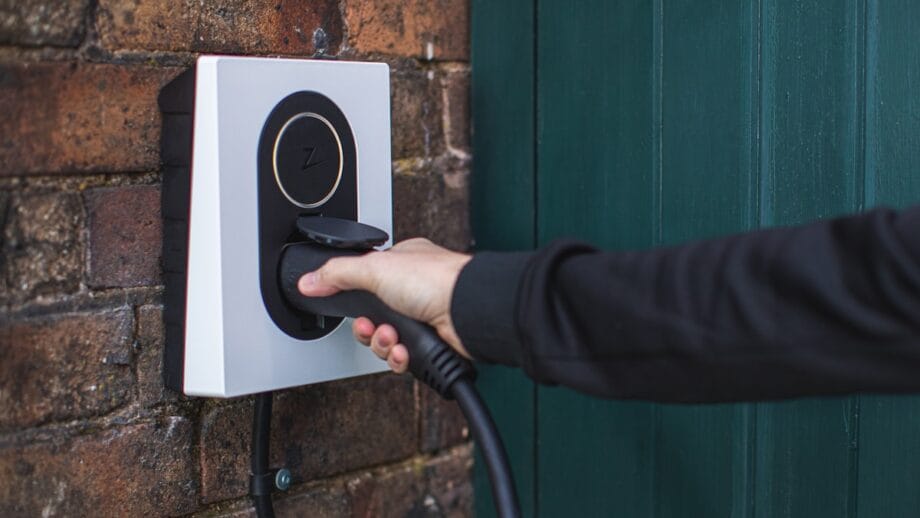Over the years, the hype surrounding electric vehicles has been growing and this time it goes beyond individual cars. Electric vehicles are slowly revolutionizing the logistics industry concerning transportation by ensuring goods move from one place to another. Does this necessarily mean that such future travel and transportation would be sustainable? Would electric vehicles be the beginning of a more sustainably oriented mode of transportation? This paper is set to explore the world of EVs and their place in future logistics.
What are Electric Vehicles?
Before we dive into how electric vehicles are changing logistics, let’s break down what constitutes an electric vehicle. An electric vehicle is, in short, any kind of transport that is fueled by electricity rather than any conventional fuel such as gasoline or diesel. This ranges from cars to buses, trucks, and even scooters. Electric vehicles use electric motors and rechargeable batteries. The edge over gas-powered vehicles is that they don’t emit pollutants; therefore, they are clean and environmentally friendly transport.

Surging EVs in Logistics
It was a long time ago when logistics depended on large, fuel-guzzling trucks for the delivery of goods. These vehicles are used in getting products from manufacturers to warehouses to stores and finally to customers. However, the traditional method of logistics comes with relatively immense environmental costs like a high level of greenhouse gas emissions, air pollution, and noise pollution. This has made companies look for more sustainable solutions, and one of these which has lately gained great recognition is electric vehicles.
Cars like Tesla, Rivian, and Volvo have sold electric trucks during the last decade, especially for logistics. They are meant to undergo heavy loads and long distances without causing excessive negative environmental impact. Currently, numerous logistics companies are beginning to add EVs to their fleets, and this will significantly grow in the next few years.
Why Do Electric Vehicles Matter in Logistics?
So why do electric vehicles stand a chance in the future of logistics? Here are several reasons why EVs are setting the industry on fire:
- Reduced Emissions: In most aspects, the most positive attribute of electric vehicles lies in the prospects of reducing all sorts of harmful emissions. The kind of carbon dioxide (CO2) that traditional logistics trucks emit considerably in the atmosphere and other pollutants cause climate change and air quality issues. EVs give no tailpipe emissions and subsequently clean up the air; they also reduce the carbon footprint in the logistics industry.
- Lower Operating Costs: Electric vehicles cost more to purchase but cost less to operate compared to fuel-powered vehicles. Electricity is significantly cheaper than fuel, and EVs have fewer moving parts, reducing maintenance costs. Savings can add up remarkably over the long term for logistics companies if they switch to electric fleets.
- Quiet Operation: Logistics trucks are noisy and often cause noise pollution in cities or urban areas when put into operation frequently. Electric vehicles are relatively quieter compared to fuel-powered ones, thus reducing noise pollution in densely populated areas. This is highly beneficial for companies that operate close to homes or at nonpeak hours.
- Government Incentives: Governments across the world are encouraging firms to adopt electric vehicles. However, these incentives take various forms such as tax credits, grants, and rebates for those companies having an interest in investing their resources in EVs. In many instances, governments offer additional benefits through gains in low-emission zones; hence the structure will be more efficient to undertake logistics operations.
Challenges Associated with EVs in Logistics
While prospects for electric vehicles in logistics are rather bright, there are still plenty of challenges that need to be overcome. Let’s see them up close.
The biggest drawback for electric logistics trucks is their weak reach for distance in driving. With tremendous advances in battery technology, many electric trucks are yet to match up to what diesel-powered trucks can do at a single charge. Trucks need to cover hundreds of miles without the need to pull into a charging station for long-haul logistics.
- Charging Infrastructure: The other significant deterrent against the widespread adoption of electric vehicles in logistics is the lack of charging infrastructure. While charging stations for personal cars are coming up everywhere, large electric trucks have fewer specific facilities. Building a robust network of charging stations to accommodate logistics fleets will be critical to the success of EVs in the industry.
- Battery Lifespan: Electric vehicle batteries do not last forever. Over time, they degrade in capacity and eventually cannot hold a charge at all. For logistics companies, that’s a pain since they may need to replace vehicle batteries after several years of service. However, industry research into how to get that much better battery and recycling technology programs will reduce some of that impact in the future.
- Initial Costs: Even though electric vehicles save much in the long term, the prices of buying EVs are usually high compared to the purchase of traditional fuel-powered trucks. Small logistics companies working under tight budgets find this a significant hurdle to embracing electric trucks. However, as electric vehicle technology spreads all over, the cost of acquiring electric vehicles is likely to drop.

How Electric Vehicles Can Improve Sustainability?
Despite all these pains, the advantages of electric vehicles in logistics simply cannot be ignored. Logistics companies can make concrete steps toward a future that is more sustainable, and eco-friendly, by substituting EVs in place of traditional fuel-powered trucks. Let’s take a closer look at how EVs can contribute to sustainability in logistics.
- Reduced levels of greenhouse gas emissions: Increasingly implementing electric vehicles in logistics will reduce and eventually eliminate or reduce greenhouse gas emissions. Transport is the largest sector responsible for carbon dioxide emissions worldwide and logistics trucks are right at the top. Electric vehicles will see logistics companies cut their emissions by half and thereby reduce changes in climate and polluted air.
- Building renewable energy: Most electric vehicles can be fueled by renewable energy sources such as wind, solar, and hydropower. The growth of logistics companies switching to EVs could further help sustain demand for clean energy. Even logistics companies have installed panels on warehouses and charging stations to generate renewable energy for their electric fleets.
- Improving the efficiency of a supply chain: Electric vehicles often come with advanced technology that enables different companies to keep monitoring vehicle performance, track real-time delivery routes, and realize optimal fuel consumption. This could help logistics companies streamline their operations, reduce the amount of fuel waste, and ensure timely delivery in return.
- Brand Reputation: In the present day, the demand is for companies to act sustainably. Logistics firms can show that they mean business when they switch to electric vehicles as a way of adapting to sustainability. In return, they build customer loyalty and make themselves different in the market.
Role of Electric Vehicles in Last-Mile Delivery
One of the most thrilling areas where electric vehicles come into play is in last-mile delivery. Last-mile delivery refers to the final stage of the logistics process, where goods are delivered from a distribution center to the customer’s doorstep. This is typically one of the most time-consuming and expensive parts of the logistics process, and it’s also the area where the environmental impacts can be the highest.
Electric vehicles are well-suited for last-mile delivery for several reasons. Firstly, their much lower emissions make it ideal for urban surroundings because air pollution is a major concern. Quiet operation makes it less noisy in residential neighborhoods. Finally, their compact size makes them perfect for maneuvering through the narrow streets of the city.
The best logistics companies have already begun experimenting with electric vehicles for last-mile delivery. For example, Amazon has introduced several cities with electric delivery vans, while UPS rolled out a fleet of electric trucks to deliver goods in urban areas. These initiatives will help mitigate the environmental burdens associated with last-mile delivery while increasing efficiency.
Future of Electric Vehicles in Logistics
So what’s in the future for electric vehicles in logistics? While all is not rosy yet, things are looking good. As the technology improves, electric logistics trucks will be able to cover long distances and carry heavier loads. Concurrently, the charging infrastructure will continue expanding in number as will convenience for logistics companies to power their electric fleets.
Other than technological development, government policies and regulations will be the other strong factors that determine how the future of EVs in logistics may take shape. Most countries have already planned to emit less carbon or reduce their carbon footprints by adopting more electric vehicles than agreed initially. For example, the European Union has established ambitious goals: by 2030, it requires the reduction of CO2 emissions from new trucks by 30%. Similarly encouraging initiatives are gradually introduced in many countries. The more this type of policy is implemented, the sooner electric vehicles will replace gasoline engines in logistics.
The Future is Green and Electric

Electric vehicles are a giant step forward for the logistics sector because they represent, very basically, more ecological and environmentally friendly ways of transporting goods. Their ability to produce fewer emissions, reduce a company’s operating cost, and promote renewable energy change logistics for the better. Several stresses are still attributed to EVs; however, increasing knowledge and government support are offsetting the latter.
The use of electric vehicles will be much broader, and this will eventually lead to a much cleaner and streamlined logistics system that will not only help the business but the environment as well. Roads may stretch far, distant yet slowly unfolding before them, but electric vehicles are paving the way toward a bright future of travel.





